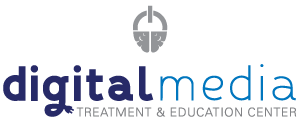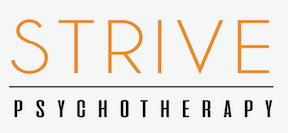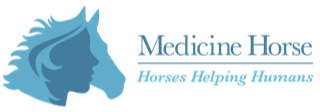Northeastern University’s campus in Boston offers a vibrant and inclusive community. The campus provides modern facilities, state-of-the-art research labs, libraries, and a wide range of student organizations and activities. Northeastern promotes diversity, equity, and inclusion, fostering a sense of belonging for students from various backgrounds. As we often say at Collegiate Coaching Services, a student’s sense of identity and connection with their campus is a primary factor in their overall success.
Academic Life at Northeastern University
Academic life at Northeastern University is rooted in experiential learning. This is reflected in the school’s core curriculum which is organized by broad-based knowledge and skill instead of specific academic subjects.
NUpath: Northeastern University’s Unique Core Curriculum
Rather than focus on specific academic subjects, Northeastern’s core curriculum, called NUpath, focuses on eleven areas of what they call, “essential, broad-based knowledge and skill.” Students must complete at least one course with each of the following attributes by graduation.
NU Core Curriculum
- Engaging with the Natural and Designed World
- Exploring Creative Expression and Innovation
- Interpreting Culture
- Conducting Formal and Quantitative Reasoning
- Understanding Societies and Institutions
- Analyzing and Using Data
- Engaging Differences and Diversity
- Employing Ethical Reasoning
- Writing Across Audiences and Genres
- Integrating Knowledge and Skills Through Experience
- Demonstrating Thought and Action in a Capstone
Northeastern’s Core Curriculum Offers Greater Flexibility for Students
Experiential Learning at Northeastern University
Experiential learning at Northeastern University can take many forms. Most commonly, students participate in the co-operative education program, service learning courses, or study or work abroad.
Northeastern University’s Co-Op Program
One of the standout features of Northeastern University is its renowned co-op program. Students can integrate academic studies with real-world work experience through multiple co-op placements. This program allows students to gain valuable professional experience, explore different industries, develop skills, and build a strong network of contacts for future career opportunities.
Over 90% of undergraduate students at Northeastern participate in the co-op program. Through this program, students alternate between periods of academic study and periods of full-time employment. Co-operative jobs can be located in Boston, across the country, or abroad. Most students work at their first co-op job during the second semester of their sophomore year and many complete up to three co-op opportunities by the time they graduate.
Preparing for the Northeastern Co-op Program
Students applying to Northeastern’s co-op program must meet all GPA requirements, conduct a job search, and go to school full time.
Students are assigned a co-op coordinator, but they are expected to take the lead. Students need to prepare their resumes and cover letters, actively look for and apply to co-op postings in the school’s database, respond to communications from their co-op coordinator and prospective employers in a timely manner, and interview for co-op positions.
At the same time, students must be making satisfactory progress toward their degree per the standards set by the University, their college, and their major program curriculum. A cumulative GPA of 2.0 or above is required to search for a co-op job through the school’s online database. Some co-op opportunities require more than a 2.0.
Preparing for the Co-Op Program with Executive Function Coaching
Applying to co-op jobs and keeping up with academics can be overwhelming for students who have difficulty with things like organization, time-management, and future planning. These executive function skills allow us to focus on goals, manage ourselves, and get things done.
Executive function coaches from Collegiate Coaching Services (CCS) meet regularly with students at the Curry Student Center at Northeastern’s Boston campus to work on these issues. Executive function coaches from CCS help students organize class syllabi, assist them in setting a plan for completing assignments and preparing for exams, and for meeting co-op deadlines and requirements. All while helping them develop tools to use for a lifetime. Students who engage in Collegiate Coaching Services during their freshman year of college achieve an average 3.08 GPA (B) versus the average 2.17 (C) who do not.
If you need more one-on-one support to keep up with the demands of college, including help staying on top of your co-op job search, contact us about executive function coaching.
Read about our Boston summer college-prep program.
Service Learning Courses
Service learning courses offer another opportunity for experiential learning at Northeastern University. Service learning courses provide students with academic credits while incorporating real-world opportunities for community engagement or service. Courses are designed by individual faculty members who lead the class in meeting needs and goals of the community while also satisfying learning objectives and outcomes. These opportunities provide practical application of classroom knowledge, fostering critical thinking, problem-solving skills, and personal growth.
Global Experience at Northeastern
Working or studying abroad is an incredible way to add an experiential component to learning. Northeastern University is focused on growing a powerful international network in order to afford students opportunities on multiple continents. Currently, students can study abroad, find work at an international co-op opportunity, or spend the summer abroad completing a faculty-led, experiential course.Preparing for a Global Experience at Northeastern
Participating in a study abroad program or international co-op opportunity requires a lot of planning. Students must meet GPA requirements, have passports and other documents in order, meet with advisors, find opportunities, apply, and get accepted. All while staying on top of their day-to-day coursework.Preparing with Executive Function Coaching
Students who have trouble with time management, organization and future planning can benefit from some extra help with their applications and coursework. Executive function coaches from Collegiate Coaching Services (CCS) meet regularly with students at Northeastern’s Boston campus to provide this kind of support. Executive function skills allow us to focus on goals, manage ourselves, and get things done. An executive function coach from CCS can help you organize class syllabi, assist you in setting a plan for completing assignments, reading, and preparing for exams, and for meeting Global Experience deadlines and requirements. All while helping you develop tools to use for a lifetime.
If you need more one-on-one support to achieve your goals at Northeastern, contact us about executive function coaching.
Read about our college-prep programs for students in Boston.
Diverse Course Offerings and Student Programs
Northeastern University offers a wide range of academic programs across disciplines such as business, engineering, computer science, health sciences, social sciences, arts, and humanities. The university’s faculty members are distinguished scholars, researchers, and professionals in their fields, bringing real-world expertise and insights into the classroom.
Northeastern University Online Course Catalog
The Northeastern University course catalog can be located online. This resource contains course descriptions and a host of other information for undergraduate and graduate students. Course descriptions are listed alphabetically by department. Each course description includes a list of prerequisites.
Student Support Services
Northeastern University promotes an entrepreneurial mindset and offers resources and support for students interested in innovation, startups, and entrepreneurship. The university has entrepreneurship centers, incubators, and funding programs that help students turn their ideas into reality. Northeastern’s strong focus on experiential learning also nurtures an entrepreneurial spirit and encourages creative problem-solving.

Campus in the Center of an International City
The location of the campus is close to the city center ensuring easy access to many of the wonderful opportunities Boston has to offer such as, a baseball game at Fenway Stadium, enjoying the great Boston outdoors which includes state and urban parks, miles of trails and fun activities along the Charles River, Mass Poetry at Boylston Plaza, many amazing museums, including the Isabella Stewart Gardner Museum and the Museum of Fine Arts, and much more.
Be sure to come to the Ell Hall lobby to rub the King Husky’s nose for good luck.
We look forward to seeing you on campus!
Go Huskies!
Career Preparation
When it comes to career preparation, Northeastern University ranks high. A Wall Street Journal report on US colleges says Northeastern is the top school in the northeast for career preparation. And US News and World Report ranked Northeastern University the #1 school in the nation for requiring or encouraging students to participate in closely supervised internships, practicums or co-operative education.Northeastern University Acceptance Rate
Northeastern University has an acceptance rate of 5.6%, making it one of the lowest in the nation.
Why is Northeastern So Hard to Get Into?
96,327 students applied to attend Northeastern University as undergraduates for the 2023-24 school year, up 50% from 2020. Due to the school’s location in the dense, urban center of Boston, overcrowding and housing shortages have become an issue. Which caused acceptance rates to go down. Some students who’ve applied to Northeastern University in Boston are accepted on the bases that they attend one of Northeastern’s other campuses in Oakland, California or London, England.
Why is Northeastern So Popular?
The school has skyrocketed in popularity in recent years. Which university leaders attribute to Northeastern’s strong experiential learning program and growing global footprint. Northeastern has a network of 14 campuses in the US and abroad.
Northeastern University Graduation Rate
You might read that Northeastern University’s graduation rate is 0%. But there’s a reason for that. Most sources calculate graduation rates by looking at the percentage of full-time students who graduate in four years. Northeastern’s popular co-operative work program, however, requires most students to leave the Boston campus for a year to work. That means most Northeastern students take anywhere from 4.5 to 6 years to graduate. When the data is expanded to six years, Northeastern’s graduation rate goes up to 91.2%. Source: facts.northeastern.edu
What is the Admissions Process at Northeastern?
Northeastern University accepts student applications via the Common Application or the Coalition Application, two online platforms where students can apply to participating universities with one application. According to their website, Northeastern doesn’t have a preference between the two sites and will review applications from both equally. For classes entering through 2026, Northeastern doesn’t require a submission of standardized testing for consideration. According to their website, students who do not submit standardized testing will not be disadvantaged. However, any student can submit ACT or SAT scores to be reviewed if they like. For more detailed information, visit the Admission Policy and Entrance Requirements on the Northeastern University website. Application evaluation begins once all application credentials have been received. Students are informed of their application information through the Application Status Check located on Northeastern University’s website.Northeastern University First-Year Application Requirements
In addition to the completed application from Common or Coalition, Northeastern requires the following from first-year applicants:
- Completed application from the Common Application or the Coalition Application website.
- Answers to any Northeastern-specific questions on the Common or Coalition website.
- An application fee or a request for a fee waiver through the application.
- An Early Decision Agreement if you’re applying under the Early Decision I or Early Decision II application option.
- Letters of recommendation from your high school counselors and teachers.
- A transcript containing:
- Your final 11th grade transcript.
- Your first-semester or first-trimester high school senior-year grades must also be submitted as soon as available. First-quarter grades are not required.
- GED score reports (where applicable) and your most complete high school transcript.
- Home-schooled students, submit an academic portfolio/transcript consistent with your state guidelines including your grades and proof that you will meet all requirements for a high school diploma by the end of May of your graduation year.
- Home-schooled applicants must also submit a GED, or a certificate of completion from your local school district or state board of education, by the end of July of the year of enrollment.
- Home-schooled students must also submit Northeastern’s home-school supplement, detailing the rigor of your coursework.
- Students from schools with narrative evaluations instead of letter grades must submit the narratives.
- If you’re completing high school in three years or less: Statements of support from your high school principal or guidance counselor and your parents addressing your academic readiness and emotional maturity for college. Early high school graduates are only considered at Regular Decision or Early Decision II so first-semester/trimester grades from the current academic year can be considered.
8. Non-native English-speaking applicants must submit official results from an approved English language test if you were not educated entirely in English during the four consecutive academic years prior to enrollment at Northeastern.
9. Applicants to the BFA in Studio Art program must submit a portfolio. A portfolio is highly encouraged for all applicants to the College of Arts, Media and Design. See the additional Admission Requirements for the College of Arts, Media and Design on the Northeastern University website for more information.
How Executive Function Coaching Can Help During the Application Process
Students who have trouble with time management, organization and future planning can benefit from some extra help with their college applications and preparations. Executive function coaches from Collegiate Coaching Services (CCS) meet regularly with students at Northeastern’s Boston campus and virtually with students in the Boston area to provide this kind of support. Executive function skills allow us to focus on goals, manage ourselves, and get things done. An executive function coach from CCS can help you organize class syllabi, assist you in setting a plan for completing assignments, reading, and preparing for exams, and for meeting Global Experience deadlines and requirements. All while helping you develop tools to use for a lifetime.
If you need more one-on-one support to achieve your goals at Northeastern, contact us about executive function coaching.
Read about our Boston summer college-prep program.
Dorm Life at Northeastern University
Northeastern University in Boston fosters living experiences for their new students that they call Living Learning Communities or LLC’s. There are more than 15 LLC’s at Northeastern spread across eleven residence halls. Each LLC has its own theme. Some are academic while others are lifestyle oriented. Incoming students choose the LLC they want to join based on their own personal or academic interests. The idea is to join a ready-made community of students you could imagine becoming your friends. Your housing is then assigned based on your LLC so that you live with other like-minded students. Building assignments change from year to year based on the interest level of each LLC.How Important is Your Living Learning Community (LLC) Choice at Northeastern?
Northeastern’s website says LLC’s provide regular events for students to get to know one another and learn new things. But online reviews are mixed. Multiple commenters on Reddit say Northeastern’s Music LLC is good at providing opportunities to make friends. Some call it a “tighter knit community” due to the size of the group.Comment
byu/WoodenDuk from discussion
inNEU
Other commenters say your LLC only effects where you live.
“I picked Sports Leadership,” one Reddit user says, “we literally had one event that year which nobody went to.”
Another commenter says that, in practice, “LLCs matter extremely little and provide very little to support you besides putting you in closer proximity to others of the same major/interest.”
With a notable exception.
“The exception is the Honors LLC,” the same commenter continues. “which you are required to be a part of to be a part of the Honors Program. This LLC gives you access to the best freshman dorms on campus, East Village.” The Northeastern University Honors LLC webpage verifies that they are housed at the East Village dorms.
Residence Halls
First-year students at Northeastern University in Boston live in co-ed residence halls and usually share a room with one or two others. There are 11 co-ed residence halls with capacities ranging from 75 to 700 students. There are large dining halls and common study areas in two of the larger residence halls.
Apartment Complexes
Most upper-class students live in apartment-style residences. Rooms come in three levels: economy, standard, and enhanced.
Off-Campus Housing and Support Services
Northeastern’s Off Campus Housing and Support Services offer information, resources, and materials regarding off-campus student living.
Undergraduates at Northeastern in Boston are required to live in university housing during their first two years. New students who wish to forgo university housing must submit a residency waiver request to Northeastern University Housing and Residential Life.
Roommates at Northeastern University
If you have a friend you want to live with, you have the option to add a roommate group to your housing application. Just put each other’s roommate pin number in your housing applications and make sure you both choose the same LLC.
Life Skills at Northeastern University
Life skills are crucial to success at Northeastern University and beyond. There are a number of life skills development resources available to students at Northeastern in Boston.
Habits of Success
A program at Northeastern University called Habits of Success (HOS) hosts workshops for students related to personal development and academic success. Goal setting, resiliency, imposter syndrome, and more have been covered at previous workshops. Plus they have a Habits of Success YouTube Channel with video content from past workshops. Habits of Success also provides individualized coaching for undergraduate students to work on topics discussed in workshops as well as other goals.
Support Groups & Workshops from Northeastern University Health & Counseling Services
Northeastern University Health and Counseling Services offers a variety of support groups that meet in Boston. Support groups are open to current undergraduate and graduate students in Boston. To view support groups, visit the University Health & Counseling Services Support Groups & Workshops page.
Workshops are held online and open to Northeastern students around the world. To see a list of upcoming workshops visit the University Health & Counseling Services Support Groups & Workshops page and scroll to the bottom.
Developing Life Skills with Executive Function Coaching
Collegiate Coaching Services offers in-person executive function coaching to students at Northeastern University. Executive function skills are the foundation for life management. They allow us to focus on goals, manage ourselves, and get things done. Our coaches meet regularly with students at the Curry Student Center in the heart of Northeastern’s Boston campus to support them in preparing for college, adjusting to campus life, and coping with the stress commonly associated with college. Our services are personalized to meet each student’s learning, neurodevelopmental, and emotional needs as they relate to academic, employment and life management success.
If you’ve tried university resources and feel you need more concentrated, one-on-one support to develop life skills, contact us to learn about executive function coaching from CCS or to enroll.
Read about our Boston summer college-prep program.
Table of Contents
Table of Contents
Read more about our On-Campus Services in Boston.
Read more about Executive Function Coaching from Collegiate Coaching Services.
Read about our Boston summer college-prep program.






